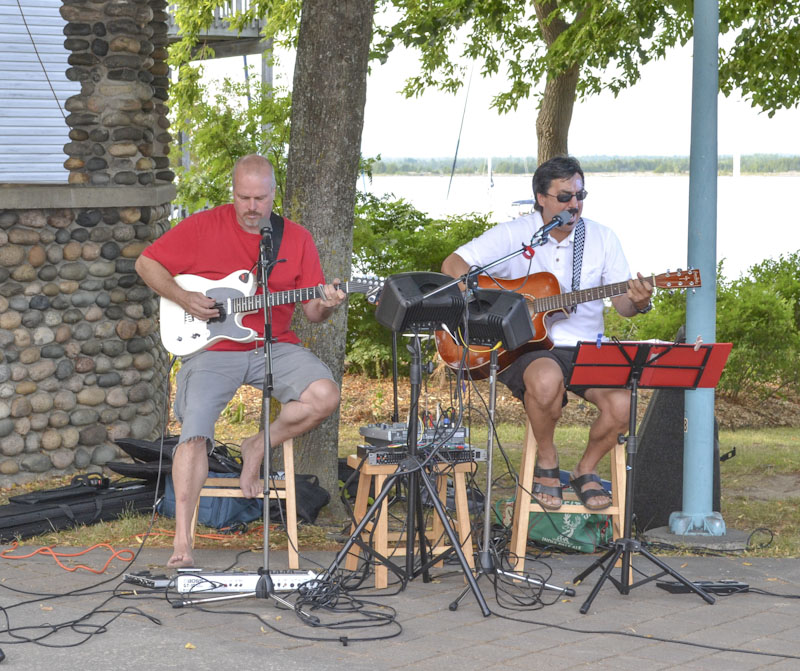Ontario legislation ends high school teachers’ strike, establishes arbitration protocols
TORONTO—High school students and teachers are back in the classroom following a ruling by the Ontario Labour Relations Board (OLRB) that strikes at the Durham, Peel and Rainbow District School Board (RDSB) were illegal, ordering teachers back to work for at least two weeks, but the provincial government went ahead with back to work legislation to ensure no further interruption in the school year as was called for by the Ontario Secondary School Teachers Federation (OSSTF) for June 10.
“Our government’s first priority is supporting student achievement and well-being. We have tremendous respect for both teachers and the collective bargaining process,” said Liz Sandals, Minister of Education, “but after weeks of strikes, students’ needs are paramount and what they need most is to be able to complete their school year.”
There were 72,000 students at the three impacted school boards and the province had requested verification that those students’ school year was in danger prior to introducing the legislation.
Today, Ontario passed the Protecting the School Year Act, 2015, which will save the school year for 72,000 secondary students in Durham, Rainbow and Peel district school boards who have missed weeks of class after strikes by the OSSTF, reads a release from the Ministry of Education. “The Protecting the School Year Act, 2015, was introduced following an advisement from the Education Relations Commission on May 25 that secondary students in the three affected boards were in jeopardy of not being able to complete their school year.”
The release went on to cite the Ontario Labour Relations Board May 26 decision, which ruled that the strikes in Durham, Peel and Sudbury were unlawful and ordered a two-week moratorium on future strikes, “however, the board’s ruling does not prevent a strike in Durham, Peel and Sudbury from resuming in June.”
By passing the Protecting the School Year Act, 2015, all secondary students in Durham, Rainbow and Peel district school boards are assured of successfully completing their school year without fear of further interruptions, notes the release. “This legislation ensures that the Ontario Secondary School Teachers’ Federation is prevented from legally striking in the three affected school boards for the remainder of 2014-2015 school year.”
A revised school year calendar is now in effect for Rainbow District School Board’s secondary schools which re-opened to students and staff on May 27.
“We maintained, from the outset, that our students and their families were caught in a dispute between OSSTF and the province,” said RDSB Chair Doreen Dewar. Adding that “we are pleased with the OLRB ruling. The ruling will help to define what is central and what is local in this complex bargaining process.”
On the heels of the OLRB hearing and the back-to-work legislation, the RDSB issued a statement announcing that “all students are required to return to class in order to obtain their credits and graduate.”
According to the release, “learning will be prioritized and maximized to enable students to complete the school year within the remaining number of school days; there will be no extension to the school day or the school year; while students will continue to be evaluated on their achievement of overall curriculum expectations, there will be no formal exams; dates previously set aside for exams will become instructional days; the Professional Activity Day scheduled for Friday, June 12 will be an instructional day for secondary students; transportation will be provided to secondary students on Friday, June 12; the Grade 9 EQAO mathematics assessment has been cancelled; and the last day of school for secondary students will be Thursday, June 25.
Both the unions and opposition parties were quick to criticize the government on their handling of the education portfolio.
The OSSTF said it is disappointed with the ruling, which stated that the withdrawal of services by teachers in the Durham, Rainbow and Peel District School Boards was unlawful, reads a release from the teachers’ union. “In his ruling, OLRB Chair Bernard Fishbein stated that elements of the strikes by OSSTF/FEESO contravened the School Boards Collective Bargaining Act.”
“We will comply with the ruling of the OLRB and our members will be back at work tomorrow,” said Paul Elliott, president of OSSTF/FEESO. “However, this ruling does not change the fact that our members have grown increasingly frustrated by the lack of progress at both the local and central bargaining tables. If these school boards had just made an honest effort to engage in meaningful negotiations at their local bargaining tables, there would have been no strike and no need for a hearing.”
“The Durham, Peel and Rainbow boards should have been focussed on getting deals at their local bargaining tables rather than on attacking their employees at the OLRB,” agreed Fred Hahn, president of CUPE Ontario in a release following the OLRB decision. “CUPE’s bargaining has been proceeding at a glacial pace and we completely understand the frustration of OSSTF teachers.”
CUPE’s education workers gave their union an overwhelming strike mandate of 93 percent in province-wide votes held earlier this spring, notes the same release. “CUPE has not yet been able to reach agreement with the management team composed of school boards and the province regarding what items will be centrally bargained versus locally bargained. CUPE has hearing dates set at the OLRB in June on that matter.”
“Minister Sandals should be directing boards to meaningfully bargain to end these strikes,” said Terri Preston, chair of CUPE’s central bargaining committee for education workers. “The events of the last few days have shown that the new bargaining structure has not prevented the chaos that took place under Bill 115 in Ontario, as the Liberal government promised it would. Labour peace is not going to be possible without a serious change in direction on the part of the government.”
“This Liberal government hides behind others—first the Education Relations Commission, now the Ontario Labour Relations Board,” continued Mr. Hahn. “Our members see this for what it is, and it will only double our resolve to stand with OSSTF and to continue to fight for a fair collective agreement for our members.”
Both the unions and opposition party spokespersons indicated that the government’s route, while ensuring that students will not lose their year, have increased the tension at the bargaining table and foreshadow a fall session rife with labour unrest.
Both Ontario Premier Kathleen Wynne and Minister Sandals reject that characterization, pointing out that the start of the new year remains three months away and that the government is determined to find common ground with the teachers.
Under the proposed legislation, all parties to the negotiation remain able to bargain on outstanding local issues with the assistance of a mediator-arbitrator, according to the province. If the parties are not able to resolve outstanding local issues, a binding decision by the mediator-arbitrator will be provided.
Under the legislation, the mediator-arbitrator has up to 120 days to issue an arbitration award and the parties may extend this time by agreement.





